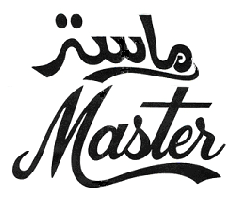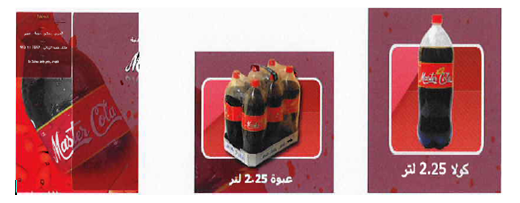16/01/2018
There is good news for Coca-Cola in their long battle with Mitico as the General Court considers evidence from outside the EU in opposition proceedings.
Background to the case
If you are looking to support an allegation of free-riding, you should not dismiss evidence from outside of the EU. Global drinks giant Coca-Cola have been in a seven year battle with Syrian company Modern Industrial & Trading Investment (Mitico) in the EU over Mitico’s EU trade mark application for the stylised mark Master as shown below. This application was filed back in 2010 in classes 29, 30 and 32, which covered food products and beverages, including cola.
Contested EU trade mark application:

Coca-Cola opposed this application on the basis of their earlier EU and UK trade mark registrations (shown below) which across the marks covered classes 30, 32, 33 and 43, for food products, beverages and related services.
Earlier trade marks relied on:

The opposition was filed at the EUIPO on the basis of Article 8 (1) (b) EUTMR for similarity between the goods and the marks, as Mitico’s application made use of the infamous Spenserian script, which is well used and recognised as Coca-Cola’s branding. The opposition was also filed on the grounds of Article 8 (5) EUTMR, claiming that Mitico’s application was free-riding on Coca-Cola’s reputation and therefore, taking unfair advantage. Coca-Cola also filed evidence to support their arguments on grounds of Article 8 (5) EUTMR by submitting evidence of Mitico’s use of the mark Master in commerce for cola beverages in Syria and the Middle East. Such evidence included material going beyond the elements of the sign of the EU opposition, in particular the red and white labelling.
Examples of this are shown here:

Decision of the EUIPO and two rounds in the General Court
The EUIPO rejected this opposition in its entirety. Coca-Cola then appealed this decision to the EUIPO Board of Appeal who also rejected this opposition on the basis that they did not consider the marks to be similar and found no likelihood of confusion between the marks. As the marks were not considered to be similar, the criteria for claiming free-riding on reputation under article 8 (5) EUTMR was not met, as at least some level of similarity is a pre-requisite for this ground.
The case was brought to the General Court in the first instance in 2014, who disagreed with the EUIPO’s decision as they considered that the marks were similar in that they had clear visual similarities, particularly in relation to the stylised long tail element of the first letters. The General Court was also of the view that the EUIPO erred in not taking into account the evidence submitted to support the unfair advantage argument, as this was relevant in considering whether Mitico was free-riding on Coca-Cola’s reputation.
However, the EUIPO still maintained their rejection of this opposition on the basis that the evidence was not from inside the EU, which was the relevant territory at issue.
In the latest decision on 7 December 2017, the General Court ruled in favour of Coca-Cola and held that the commercial use evidence was relevant as, although the evidence was not demonstrating use in the EU, the evidence may lead to a “logical inference” that there is a serious risk that the mark applied for will be used in the EU in the same way that it is used in other territories. Mitico failed to file any evidence showing alternative branding for the EU market. Therefore, there is a risk of Mitico taking unfair advantage of Coca-Cola’s long-standing reputation.
Further thoughts
The fact that the General Court looked beyond commercial use in the relevant territory of the EU in this instance gives hope to brands in the future when taking action against EU trade mark applications on grounds of free-riding. The court has demonstrated that where evidence of the applicant’s commercial use is from areas wider than the EU, it still may be considered – provided that a “logical inference” can be drawn as to likely use of the later filed mark in the EU.
While it is important to seek protection for marks in plain word format to protect against other applications for the same mark, stylised or not, this case highlights the importance of filing applications for stylised marks. Had Coca-Cola no earlier registrations for the stylised marks, they would not have been successful in this opposition, given the difference in the words themselves.
There is now the opportunity for Mitico to appeal further, to the European Court of Justice. Given that this fight has been ongoing for seven years already, it will be interesting to see what Mitico do next.
We will report on any developments but if you have any questions in the meantime, please contact our trade marks team.
This article is for general information only. Its content is not a statement of the law on any subject and does not constitute advice. Please contact Reddie & Grose LLP for advice before taking any action in reliance on it.

